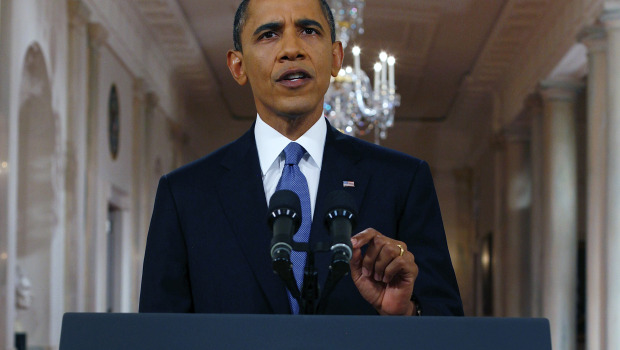UPDATES
Breakdown of Obama’s Afghanistan announcement
June 23, 2011 | Daniel Meyerowitz-Katz

As reported recently on this site, US President Barack Obama has just given a landmark speech on the US policy in Afghanistan, including a timetable for the withdrawal of combat troops. The President gave a brief history of the war, concentrating primarily on his December 2009 “troop surge” decision, where he increased the number of US combat troops in Afghanistan by 33,000 in order to counter a resurgent Taliban. As he explained (Transcript via CBS):
…in one of the most difficult decisions that I’ve made as President, I ordered an additional 30,000 American troops into Afghanistan. When I announced this surge at West Point, we set clear objectives: to refocus on al Qaeda; reverse the Taliban’s momentum; and train Afghan Security Forces to defend their own country.
Obama then announced that the surge was successful and will be withdrawn by the end of the year and the combat mission will end by 2014.
Thanks to our men and women in uniform, our civilian personnel, and our many coalition partners, we are meeting our goals. As a result, starting next month, we will be able to remove 10,000 of our troops from Afghanistan by the end of this year, and we will bring home a total of 33,000 troops by next summer, fully recovering the surge I announced at West Point. After this initial reduction, our troops will continue coming home at a steady pace as Afghan Security forces move into the lead. Our mission will change from combat to support. By 2014, this process of transition will be complete, and the Afghan people will be responsible for their own security.
Obama justified the withdrawal by lauding the joint US-Pakistani operations that have been systematically decapitating Al Qaeda’s leadership, as well as the on-the-ground progress being made by coalition forces against the Taliban. Noting the growing numbers and competence of the Afghan army and security forces, he went on to impy that the Taliban are weakened and the Afghans are strengthened enough that negotiations between them and NATO will end the conflict.
Regarding the Pakistan issue that has been on everyone’s mind since widespead speculation that the Pakistani Government had been harbouring bin Laden, Obama was resolute that the US would not allow terrorism to fester there. He did, however, affirm that he will still be working with the Pakistani Government on this mission.
We will work with the Pakistani government to root out the cancer of violent extremism, and we will insist that it keep its commitments. For there should be no doubt that so long as I am President, the United States will never tolerate a safe-haven for those who aim to kill us: they cannot elude us, nor escape the justice they deserve.
Notably, Obama set the groundwork for a less interventionist US foreign policy in the future.
Like generations before, we must embrace America’s singular role in the course of human events. But we must be as pragmatic as we are passionate; as strategic as we are resolute. When threatened, we must respond with force – but when that force can be targeted, we need not deploy large armies overseas.
This announcement comes as US public opinion is moving against the war in Afghanistan. As noted by Chris Good on The Atlantic‘s blog, even though the initial invasion of Afghanistan had the approval of 87% of the US public, American support for the war has been waning since its inception and the most recent polls show that a majority of Americans are now opposed to the war. This was not true one and a half years ago when Obama announced the troop surge to approval ratings of 59%.

As expected, Obama will be concentrating his administration’s efforts on rebuilding the domestic economy, limiting military intervention to relatively small commitments such as the current operation in Libya.
When innocents are being slaughtered and global security endangered, we don’t have to choose between standing idly by or acting on our own. Instead, we must rally international action, which we’re doing in Libya, where we do not have a single soldier on the ground, but are supporting allies in protecting the Libyan people and giving them the chance to determine their own destiny.
…Above all, we are a nation whose strength abroad has been anchored in opportunity for our citizens at home. Over the last decade, we have spent a trillion dollars on war, at a time of rising debt and hard economic times. Now, we must invest in America’s greatest resource – our people.
This is a watershed moment in terms of US foreign policy and will have many ramifications on the rest of the world. What remains to be seen is how successfully Obama can maintain America’s power and influence with a more limited military and an open aversion to sending troops overseas.
Tags: Afghanistan/ Pakistan





